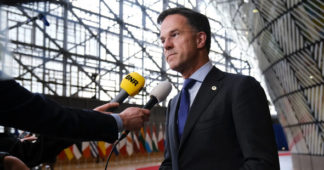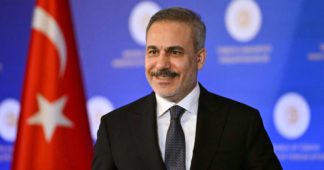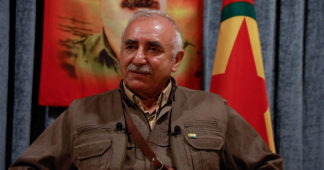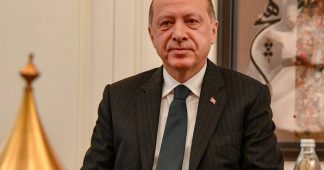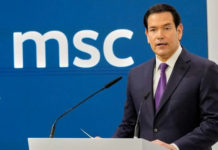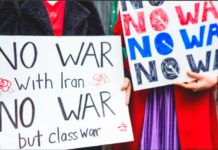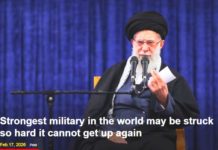Cansu Yigit
SEP 26, 2025
Despite its early support and strategic geography, Ankara has failed to secure a meaningful place in China’s Belt and Road Initiative, exposing deeper rifts between political rhetoric and economic reality.
Debates around Turkiye’s foreign policy alignment were reignited in September when Nationalist Movement Party (MHP) leader Devlet Bahceli floated the idea of a “TRC alliance” – a tripartite bloc between Turkiye, Russia, and China.
Intended as an alternative to Ankara’s established west-centric trajectory, the proposal was quickly dismissed by Turkish President Recep Tayyip Erdogan, who was in the US for the UN summit and a meeting with US President Donald Trump at the Oval Office. Responding to a reporter’s question about the TRC alliance proposal, Erdogan appeared to have no knowledge of Bahceli’s comments about the so-called TR-RU-CH alliance, and he said, “let’s hope for the best,” in a sneering tone.
Though widely dismissed as utopian given Turkiye’s NATO membership, such outbursts are part of a pattern. Periodic flirtations with joining BRICS or pivoting to Eurasia routinely appear on the domestic agenda, only to fade without institutional follow-through. The same pattern is evident in Ankara’s engagement with Beijing’s flagship Belt and Road Initiative (BRI).
A strategic corridor left underutilized
Turkiye occupies a vital geographic position on China’s proposed Middle Corridor, and was among the earliest backers of the BRI. In 2010, the two countries signed a Strategic Cooperation agreement, followed by high-level visits in 2012 and 2019.
In 2015, Turkiye formally joined the BRI and aligned its own Middle Corridor infrastructure vision with Beijing’s. Key logistics projects like the Baku–Tbilisi–Kars railway and the freight train corridor connecting Istanbul and Xi’an soon followed. Chinese capital also flowed into the Ankara–Istanbul high-speed train, Istanbul Airport metro, and Kumport port.
Yet that initial momentum quickly tapered off. By 2023, Chinese investment in Turkiye had practically ground to a halt, with the country recording zero BRI-related engagement, according to the Global Development Policy Center (GFDC). While Beijing expanded across West Asia and Africa, Turkiye’s share of global BRI investments languished at just 1.3 percent.
A trillion-dollar project, without Ankara
From 2013 to 2023, BRI investments and construction contracts worldwide exceeded $1.05 trillion. In the first half of 2025 alone, the figure surged to $1.3 trillion, surpassing all of 2024. Saudi Arabia, Iraq, the UAE, and Indonesia have emerged as major beneficiaries. Kazakhstan alone attracted $23 billion in new investment in early 2025. By contrast, Turkiye – despite its infrastructural potential and connectivity ambitions – remains a conspicuous absentee from this wave of capital.
Economic instability is the primary deterrent. High inflation, currency devaluation, and persistent macroeconomic volatility have drained investor confidence. The OECD’s 2025 economic review bluntly notes that “Inflation above 50 percent and a strongly depreciating currency have undermined investor confidence. Without macroeconomic stability, long-term direct investment will remain limited.”
No tech, no trust
Ankara has also failed to attract high-value BRI projects. Most Chinese capital has gone into low-tech sectors like retail, mining, and light manufacturing. Hopes for tech transfer and industrial development have yet to materialize.
An article titled ‘Chinese Investment in Turkey: The Belt and Road Initiative, Rising Expectations and Ground Realities,’ published in the European Review magazine in 2022, which examines China’s investments in Turkiye, reveals that Ankara does not fully meet expectations in terms of the BRI’s investments.
Speaking to The Cradle, Hasan Capan, head of the Turkiye–China Friendship Foundation, recalls that Turkiye was promised the largest BRI budget allocation at a 2017 summit in China. The proposed Edirne–Kars rail project, intended to overhaul Turkiye’s Middle Corridor, never advanced.
“Turkiye attended that meeting, it was also included in the records, but it did not participate in the signature. There was no clear explanation as to why it was not signed. In the following period, I was authorized from time to time to sign this project again, and I acted as an intermediary. We met with the Chinese side and got very positive results. There has been progress on the middle part of the project, that is, on the Kosekoy–Edirne line. China offered a loan, but the process never came to an end. The reason for this was not political, but rather economic. There was no problem politically. I even doubt whether the administrators of that period conveyed the issue to our president.”
Still, political trust remains elusive. Yang Chen, director at Shanghai University’s Center for Turkish Studies, tells The Cradle, “Separatist East Turkestan organizations operate freely in Turkiye. The Turkish government has made promises to us on this issue. Fulfilling these promises is a very important issue for China. I think if we can solve this issue of political trust, we can solve many other issues.”
According to Chen, Ankara’s promises are as follows:
“The government promised us to stop the activities of East Turkestan organizations operating in Turkiye, which China considers terrorist organizations. Now, although he has made harsh statements against them, we see that these organizations continue to carry out activities and actions.”
Beijing views Ankara’s tolerance for Uyghur organizations – which China considers terrorist groups – as a critical breach. Statements by Turkish politicians sympathetic to Uyghur separatism, coupled with NATO membership, cast doubt on Turkiye’s strategic autonomy.
“China does not believe that a NATO member country can conduct a fully independent decision-making process in international relations,” says Dr Serdar Yurtcicek, a research assistant in Shanghai. He also flags China’s concerns over the Organization of Turkic States, spearheaded by Ankara:
“The question on China’s mind is: Will Turkiye become a competitor in Central Asia? Can this organization take on an anti-China identity over time? Can the coming together of Turkic-speaking peoples lead to the patronage of the Uyghurs? Because Turkiye is the most dominant and powerful actor of this structure. Therefore, every move of Ankara in Central Asia is carefully watched and viewed with suspicion in China.”
Despite the official “strategic partnership,” trust remains thin, and the political relationship has not translated into economic cooperation.
The trap of western dependence
For Capan, Turkiye’s enduring subordination to the west remains the core problem. As he puts it:
“Today, although we are a NATO member, a foreign policy dependent on the west is being pursued because of the goal of joining the EU. This trajectory largely continues. This situation prevents Turkiye from fully turning to Asia.”
He argues that joining BRICS or the Shanghai Cooperation Organization (SCO) is not merely symbolic. “Turkiye’s future alliances with Asian and West Asian nations will counterbalance the west’s plunder of resources and silence over mass civilian deaths.” He also says that “The west’s rival initiatives, its creation of instability in different regions, and developments such as the Ukraine–Russia war are seriously complicating the progress of this initiative. Nearby developments – especially the occupation state’s aggressive stance and the west’s unconditional support – also carry the potential to directly impact the BRI.” Capan adds:
“For this reason, it seems inevitable that China must develop a strategy in line with the multipolar era. Otherwise, geopolitical transformations in the region will make the project’s implementation even more difficult.”
Unpredictability chases away capital
In the multipolar era taking shape, Turkiye’s unwillingness, or inability, to break from its western tether will keep it sidelined from the very real shifts reshaping global power and investment. Bahceli’s rhetoric may resonate with parts of Turkiye’s nationalist base, but in Beijing and other Global South capitals, such remarks reinforce Ankara’s image as an unpredictable partner. Without resolving the trust gap with China, Turkiye will continue to be passed over in favor of more stable, more predictable investment destinations.
We remind our readers that publication of articles on our site does not mean that we agree with what is written. Our policy is to publish anything which we consider of interest, so as to assist our readers in forming their opinions. Sometimes we even publish articles with which we totally disagree, since we believe it is important for our readers to be informed on as wide a speCtrum of views as possible.
